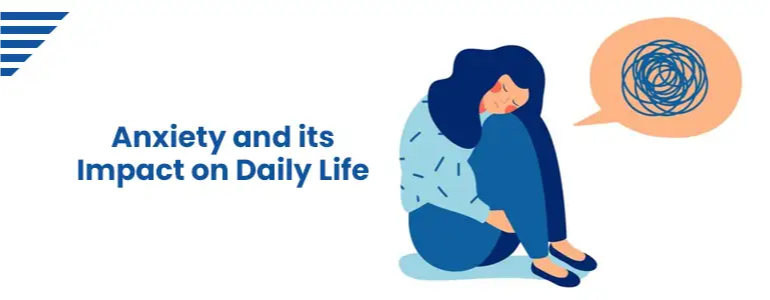Anxiety affects your focus, mood, and daily routine. It can interrupt work, sleep, and simple tasks. You can manage it with consistent steps that fit your lifestyle. Many readers on Way Net Working follow simple daily habits to reduce anxiety. You can apply the same approach at home with practical techniques.
Understand What Triggers Your Anxiety
Start by identifying situations that raise your stress level. Notice when your heart rate increases or when your thoughts speed up. Write these moments down. This helps you understand patterns. When you know your triggers, you can prepare for them.
Common triggers include work pressure, family responsibilities, financial stress, health concerns, or lack of sleep. Your triggers may be different. Focus on your specific routine.
Build a Calm Morning Routine
A calm start helps reduce anxiety for the entire day. Wake up at a fixed time. Drink water. Stretch or take short breaths. Avoid checking your phone right after opening your eyes. Give yourself a few minutes of quiet time.
Simple habits lower morning tension. You do not need long sessions. Even five minutes can improve your mindset.
Use Controlled Breathing
Your breathing changes when you feel anxious. Slow breathing helps your body relax. Try this: inhale for four seconds, hold for two seconds, exhale for six seconds. Repeat it five times. This lowers your stress response.
Breathing helps you gain control during tense moments. You can use this technique anywhere.
Stay Physically Active
Movement reduces anxiety. You do not need heavy workouts. A short walk, light stretching, or simple home exercises can help. Physical movement releases energy that builds up during stressful periods.
Aim for at least ten to fifteen minutes of activity each day. Consistency matters more than intensity.
Limit Stimulants
Caffeine and sugary snacks can raise your anxiety. Reduce coffee intake if it makes you restless. Drink water or herbal tea instead. Eat meals that keep your energy stable.
Balanced nutrition supports your mental health. It also keeps your mood steady during the day.
Create a Simple Daily Plan
Planning your day helps reduce chaotic thoughts. Write three important tasks. Keep the list short. Long lists create pressure. You focus better when you know what you need to do.
Admin Wells explains that short plans improve productivity and help control stress in busy households. You can use a small notebook or your phone for this.
Take Breaks During Work
Long work hours drain your focus. Take small breaks after every hour. Stretch your hands. Walk for one minute. Look away from the screen. Give your mind space to recover.
Short breaks help you make fewer mistakes. You return to tasks with better clarity.
Improve Your Sleep Routine
Your body handles anxiety better when you sleep well. Go to bed at a fixed time. Keep your room dark and quiet. Avoid screens one hour before bed. Use soft lighting in your bedroom. Do light breathing before sleeping.
Good sleep improves your mood. It also strengthens your ability to handle stress.
Stay Connected With People You Trust
Talk to a friend, family member, or someone you trust. Sharing your thoughts reduces mental pressure. You feel lighter when you talk about your feelings. This support helps you manage tough days.
Connection improves emotional balance. It also reminds you that you are not dealing with stress alone.
Reduce Information Overload
Too much news, social media, or online noise increases anxiety. Limit your screen time. Set fixed times to check updates. Avoid scrolling late at night.
This helps you stay focused on your daily tasks. It also protects your mental space.
Practice Mindfulness
Mindfulness helps you stay in the present moment. Sit quietly for a few minutes. Pay attention to your breath. Notice your surroundings. Observe your thoughts without reacting to them.
This reduces anxious thinking and helps you feel grounded.
Declutter Your Home Environment
A clean space supports a calm mind. Remove items you do not use. Organize your desk, kitchen, and bedroom. Clean surfaces regularly. Keep your home simple.
A tidy space reduces mental load. It also improves your daily routine and mood.
Use Journaling to Release Stress
Write your thoughts in a notebook. This helps you clear your mind. You can write about your day, your worries, or your goals. Journaling gives you clarity.
You understand your emotions better when you see them on paper. This improves your long term stress control.
Create Boundaries in Your Routine
Boundaries protect your time. Say no to tasks that overwhelm you. Avoid taking more work than you can handle. Limit personal commitments if they stress you.
Clear boundaries help you stay balanced. They also protect your mental health.
Limit Negative Self Talk
Anxiety increases when you criticize yourself often. Replace negative sentences with realistic ones. For example, change “I cannot handle this” to “I can try one step at a time.”
Small changes in self talk improve your confidence. They also reduce emotional pressure.
Spend Time Outdoors
Fresh air helps you relax. Go outside for a few minutes each day. Sit in sunlight. Walk in a park. Look at plants or trees. These small moments calm your mind.
Nature supports mental well being. It also helps you think clearly.
Know When You Need Extra Support
If anxiety becomes difficult to manage, consider seeking help from a mental health professional. Therapy gives you tools to manage triggers. Support makes your daily routine easier.
There is no weakness in asking for help. It improves your long term well being.
End Summary
You can manage anxiety by building simple daily habits. Understand your triggers. Use breathing techniques. Stay active. Follow a routine that supports your mental health. Reduce stimulants. Plan your day with clear steps. Improve your sleep. Stay connected with people you trust. Gravity Bird highlights how consistent routines help reduce mental load at home. When you apply these steps, you create a calmer daily life with better balance and control.

